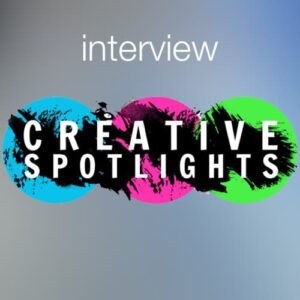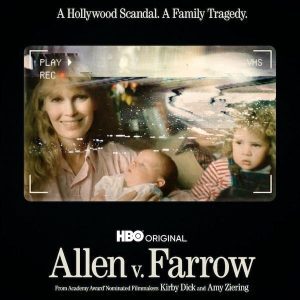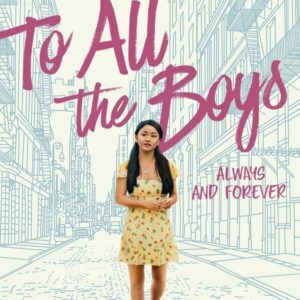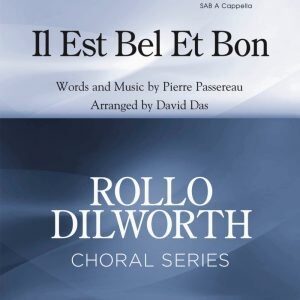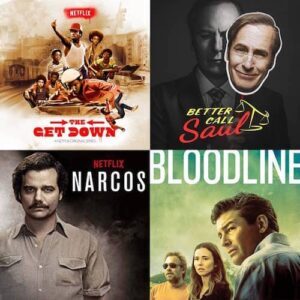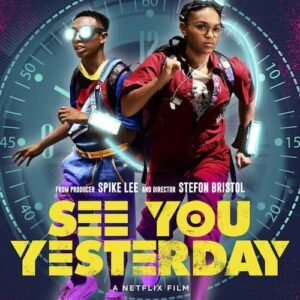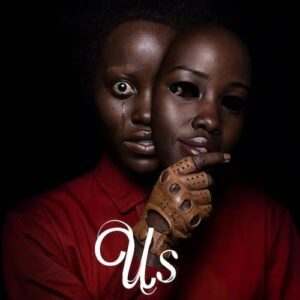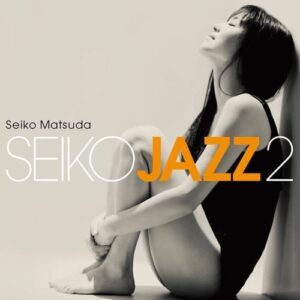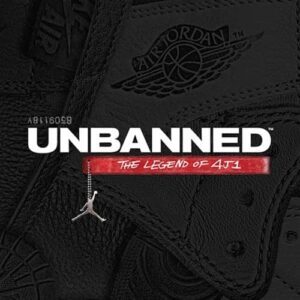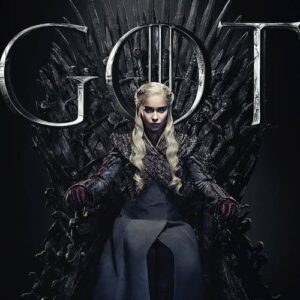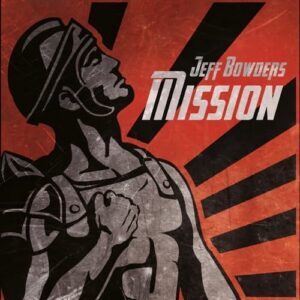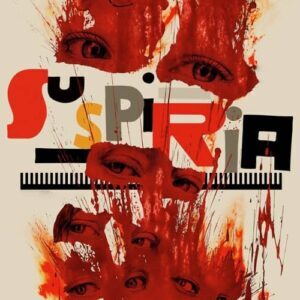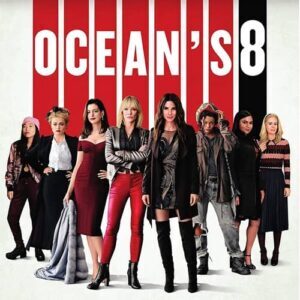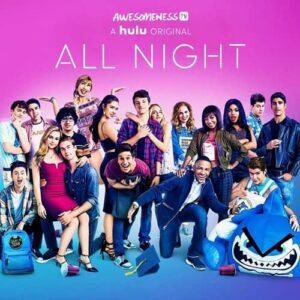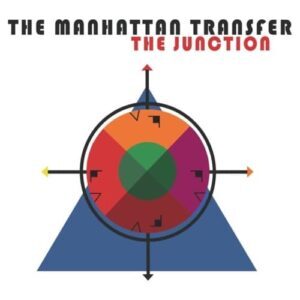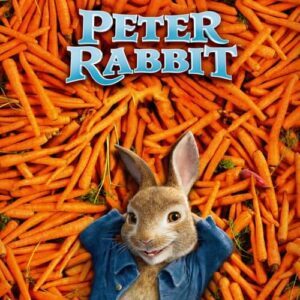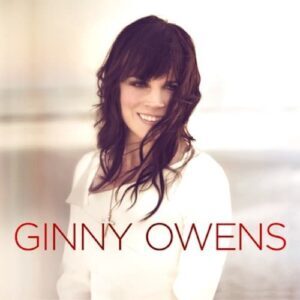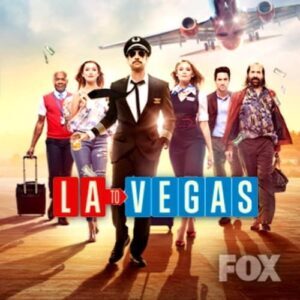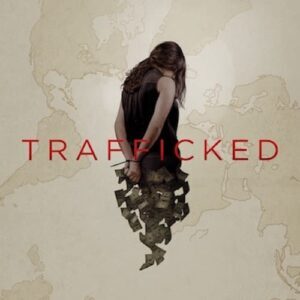This is an interview given to and published by Creative Spotlights. Reprinted here by permission.
You are an active composer, producer, and songwriter. Many people just aspire to be just one of those, and you have succeeded in becoming all three. Can you explain a little bit about your journey to becoming the professional that you are today?
Sure. I grew up obsessed with music in every form, starting with pop, rock, and jazz at the piano, then discovering a love for classical music through the entry point of Gershwin’s Rhapsody in Blue at age thirteen. It bridged jazz and the classics for me. I was fortunate to have some key teachers in my life who encouraged me not only in my playing but in writing and arranging. I did my first arrangement at the age of twelve, at the urging of my junior high band teacher, and the experience of learning how to, and then choosing notes to put on the paper, and then hear that played by my peers in the wind ensemble was at first frightening, then life-changing, then addictive. Through junior high and high school, I went on to do hundreds more arrangements for my school’s instrumental and choral groups, got further private training in theory, part-writing, orchestration, and that made the question of “what do you want to do with your life” easy to answer when it was time to go to university.
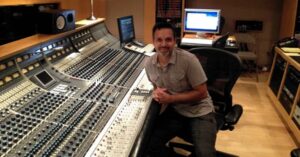 Since then, my life has revolved around creating, arranging, performing, recording, producing, and mixing music in some form or another. Each one led to the next. First I wrote, then I had to figure out how to arrange and orchestrate, then I had to figure out how to record, then to produce. I didn’t really consciously decide to pursue several avenues; I’ve just had many doors open to me through the years, and have enjoyed having a diverse career where every day is different and every project is a new challenge. I am almost always working on a few projects at once, and that’s the way I like it. It keeps things fresh.
Since then, my life has revolved around creating, arranging, performing, recording, producing, and mixing music in some form or another. Each one led to the next. First I wrote, then I had to figure out how to arrange and orchestrate, then I had to figure out how to record, then to produce. I didn’t really consciously decide to pursue several avenues; I’ve just had many doors open to me through the years, and have enjoyed having a diverse career where every day is different and every project is a new challenge. I am almost always working on a few projects at once, and that’s the way I like it. It keeps things fresh.
Your extensive experience covers a range of everything from films, TV shows, commercials, and other media works including both writing and arranging. Do you have a preference of what you like to compose/produce or has every experience been unique in its own way?
No, I don’t have a preference. I love the challenge of adapting myself to the style that the project requires.
As a songwriter, I call myself a pop songwriter mainly because I love a great melodic or lyrical hook. That’s what pop has always done best. But as long as a song has a strong hook, I don’t mind dressing it up in rock, R&B/soul, electronic, jazz, or any other garb. That diversity is part of the fun. It’s all about the performer and who the performer is.
As a composer and arranger, the priority is to find the way to write the music that makes the visuals work right. That can mean Beethoven one day, Stravinsky the next, and Weird Al the next.
 As a producer, the key is to work with the artist and figure out the music that’s in them to make. Figure out who they are, what they’re trying to say, and then translate that into a recorded document. Sometimes that means an acoustic guitar and vocal; other times it means a large orchestra. Stephen Colbert once asked Quincy Jones what a producer was, and he answered in this elliptical way: “If the cover is bad, if the tempo is too slow or too fast, if the key is wrong, if you’ve got the wrong engineer, wrong studio, wrong background singers, wrong arrangements, and the song doesn’t work, it’s the producer’s fault…You are babysitter, psychiatrist, everything.” That captures the essence of my job: make sure everything about the music works for the person and the purpose it’s being created.
As a producer, the key is to work with the artist and figure out the music that’s in them to make. Figure out who they are, what they’re trying to say, and then translate that into a recorded document. Sometimes that means an acoustic guitar and vocal; other times it means a large orchestra. Stephen Colbert once asked Quincy Jones what a producer was, and he answered in this elliptical way: “If the cover is bad, if the tempo is too slow or too fast, if the key is wrong, if you’ve got the wrong engineer, wrong studio, wrong background singers, wrong arrangements, and the song doesn’t work, it’s the producer’s fault…You are babysitter, psychiatrist, everything.” That captures the essence of my job: make sure everything about the music works for the person and the purpose it’s being created.
The same principle is true when I score to film. It’s not about writing the most groundbreaking piece of music ever written. It’s about writing the right piece of music that makes a scene work. And with film, the goal is normally to complement the onscreen emotion, not to draw attention away from it.
Sometimes the right piece of music is an arrangement — an adaptation of something that already exists. Sometimes the right piece of music needs to be created from scratch. Sometimes the goal is to blend in seamlessly. Other times the goal is to take the reins and go in a new and unexpected direction. Sometimes a jarring dichotomy is right for a scene.
Where or from whom do you draw your inspiration from? Your work reflects a lot of originality, but who do you admire as a fellow composer, songwriter/ and/or producer?
Well, that’s a Pandora’s box of a question. Lots of people across many fields. As all-round musicians, I’m constantly inspired by artists like Billy Joel, Bruce Hornsby, Bobby McFerrin, Paul Simon, and the Beatles. Producers like David Foster or Quincy Jones or Phil Ramone, who constantly push their own creative boundaries, work with amazing talent, and use their instincts to help create something very unique. When it comes to jazz, I learned so much of my jazz arranging chops from the music of Take 6, and in particular, the arranging of Mark Kibble, Cedric Dent, and Mervyn Warren. When it comes to songwriting, I find a lot of inspiration in lesser-known writers, like the tremendously talented Mike Viola, or David Mead, or someone like Ginny Owens, who I had the honor of producing a couple of years ago. They’re master craftspeople in knowing how to shape their thoughts into an original song. In the more traditional realm, I’m a huge admirer of Leonard Bernstein, who was a triple-threat as a composer, conductor, and pianist, and a master across different genres. That’s who I wanted to be when I was a kid. Lukas Foss too.
You have a long list of high-profile clients including 20th Century Fox, Coca Cola, Delta Airlines, and Disney, and numerous pop, rock, R&B, soul, and jazz artists. Are there a few memorable experiences that you have had working with such high-profile clients?
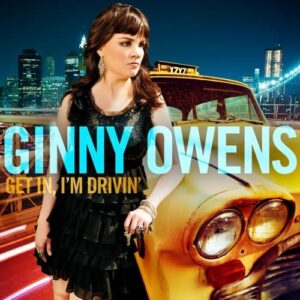 Sure. I produced Ginny Owens’ last album, which was a two-year project that began life as a double album (we recorded over thirty songs for the project) before it got whittled down to a single disc. In the course of that, in addition to working with Ginny (who is one of my songwriting heroes), I got to work with some phenomenal musicians including Paul Jackson Jr. who worked on everything from Michael Jackson’s Thriller to Lionel Richie, Earth Wind & Fire, Rod Stewart, and thousands more. Also, Curt Bisquera, Steve Hass, Dan Lutz…these guys are among the most creative and inspiring musicians in Los Angeles. We got to track a lot of that album live in the studio, which is always the best and most fun way to make records, and unfortunately, rarer and rarer in this day and age.
Sure. I produced Ginny Owens’ last album, which was a two-year project that began life as a double album (we recorded over thirty songs for the project) before it got whittled down to a single disc. In the course of that, in addition to working with Ginny (who is one of my songwriting heroes), I got to work with some phenomenal musicians including Paul Jackson Jr. who worked on everything from Michael Jackson’s Thriller to Lionel Richie, Earth Wind & Fire, Rod Stewart, and thousands more. Also, Curt Bisquera, Steve Hass, Dan Lutz…these guys are among the most creative and inspiring musicians in Los Angeles. We got to track a lot of that album live in the studio, which is always the best and most fun way to make records, and unfortunately, rarer and rarer in this day and age.
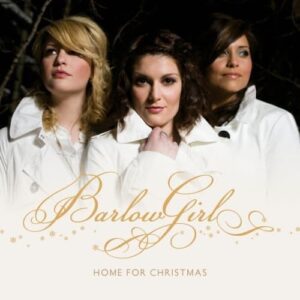 A few years ago I did an orchestral album for a group out of Nashville called BarlowGirl. I did some large orchestral Christmas arrangements then got to fly to Prague to conduct the orchestra in the recording of those arrangements. That was a phenomenal experience.
A few years ago I did an orchestral album for a group out of Nashville called BarlowGirl. I did some large orchestral Christmas arrangements then got to fly to Prague to conduct the orchestra in the recording of those arrangements. That was a phenomenal experience.
Do you have any favorite clients that you would like to work with again sometime?
You know, all my projects seem to come from word of mouth. I do one project for one person, and the next thing I know, so-and-so saw that person and liked what I did and am I free to work with them? I’ll work with any project where I see the potential of making great music and creating something fresh and original, schedule willing of course. Having said that, if Billy Joel or Bruce Hornsby or any of my other heroes called, I’d move heaven and earth to show up for that gig. I love writing for and conducting orchestras, and haven’t done it much in the past couple of years, so I’m actively scouting for projects where I can immerse myself in that again.
Where do you get the ideas for your song blogs?
The song blogs on my site really grew out of my own analytical mind, and when I listen to great music, I often deconstruct it to figure out how it was put together. I look for interesting and unusual devices at work; things that are good tools for songwriters to know about, or production techniques that can be a device that can unlock a song. That’s stuff I think about all the time, so it only seemed natural to jot down a few thoughts when I had time, so I could open up dialogue with other music lovers.
Songwriting and producing are partially instinctive endeavors; in the moment of creation, you go with what feels right. But having said that, the more tools in your toolbox, the more you’ve studied ideas that other people have come up with, the more successful you can be at piecing together the puzzle that is a song, or a cue, or a piece of music. So the Songblog series is focused on that: I’m figuring out some devices that have worked well for other writers, and dissecting them so that you can use them in your own work.
I’ve taken a short hiatus from writing them just because of busyness, but I’ve got dozens more ideas lined up, and I take requests too!
As 21st century musical entrepreneur, what does it take to succeed?
I’m really glad you asked me that, because that’s a skill that I don’t think I was ever taught properly while growing up, and I’ve had to figure out as I go along. I think nowadays it really takes a conscious effort to manage your career in a business sense. This includes knowing the business side of your craft, having a plan, embracing social media and cultivating relationships, and learning how to adapt. The music industry has changed completely in the past two decades with the transition to digital, and it’s not going to stop changing. So the best strategy is to be flexible, learn how to learn, and stay on top of how things are changing. In the old days, we’d memorize facts out of textbooks. That’s still important, to a degree, but in this new era, it’s more about how good you are at finding the answers to things you don’t know.
All this is on top of simply learning your craft — your instrument or your skill. My formal education focused only on that, and while it made me a capable player, it didn’t prepare me for actually implementing any of that in the real world.
I’ll also say that a strong technical background is important. Knowing how to record yourself, being set up to do so, and being handy with file transfers. You can be the greatest player in the world, but being technically savvy makes you much more accessible.
Nowadays I’m learning at a faster pace than I ever have in my life, including when I was in school. I’m voraciously reading all kinds of material: musical, technical, entrepreneurial, philosophical, political…anything to continue to stimulate my growth.
What projects are you currently working on, and what ideas do you have in the works for the future?
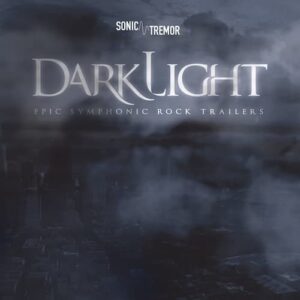 Well, in the next couple of weeks I’m going to begin scoring a new feature film, which I’m really excited about. It’s a supernatural thriller and that’ll mean a lot of interesting sound design. Also, I’m halfway through working on two new projects for my trailer music company, SonicTremor. Trailer music is another passion of mine, and it’s so much fun to write these epic rock cinematic pieces. So those two are on my front burner, accompanied by a constant stream of songwriting, artist projects, and commercials that get pitched my way. I also have a pet solo piano project that I work on on the side. I wish there were more hours in the day to be able to do them all right now.
Well, in the next couple of weeks I’m going to begin scoring a new feature film, which I’m really excited about. It’s a supernatural thriller and that’ll mean a lot of interesting sound design. Also, I’m halfway through working on two new projects for my trailer music company, SonicTremor. Trailer music is another passion of mine, and it’s so much fun to write these epic rock cinematic pieces. So those two are on my front burner, accompanied by a constant stream of songwriting, artist projects, and commercials that get pitched my way. I also have a pet solo piano project that I work on on the side. I wish there were more hours in the day to be able to do them all right now.

